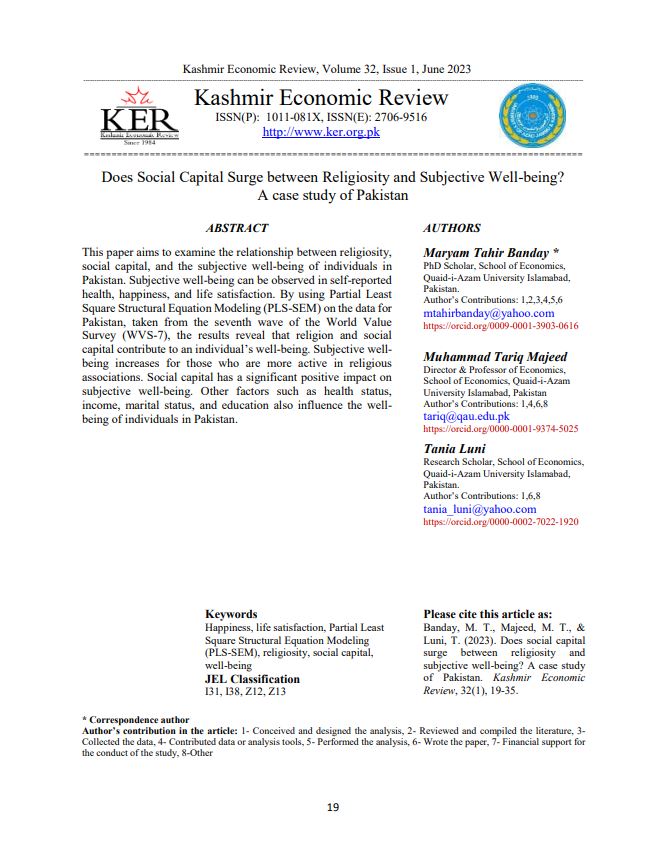Does Social Capital Surge between Religiosity and Subjective Well-being?
##plugins.themes.bootstrap3.article.main##
Özet
The objective of this paper is to examine the relationship between religiosity, social capital, and the subjective well-being of individuals in Pakistan. Subjective well-being is observed in three aspects: self-reported health, happiness, and life satisfaction. The analysis is performed on data taken from the seventh wave of the World Value Survey (WVS-7). Using Partial Least Square Structural Equation Modeling (PLS-SEM) the results reveal that religion and social capital contribute to an individual’s wellbeing. Subjective well-being increases for those who are more active in religious associations. Social Capital has a significant positive impact on subjective well-being. Other factors such as health status, income, marital status, and education also have an influence on the well-being of individuals in Pakistan.
##plugins.themes.bootstrap3.article.details##

Bu çalışma Creative Commons Attribution-ShareAlike 4.0 International License ile lisanslanmıştır.

